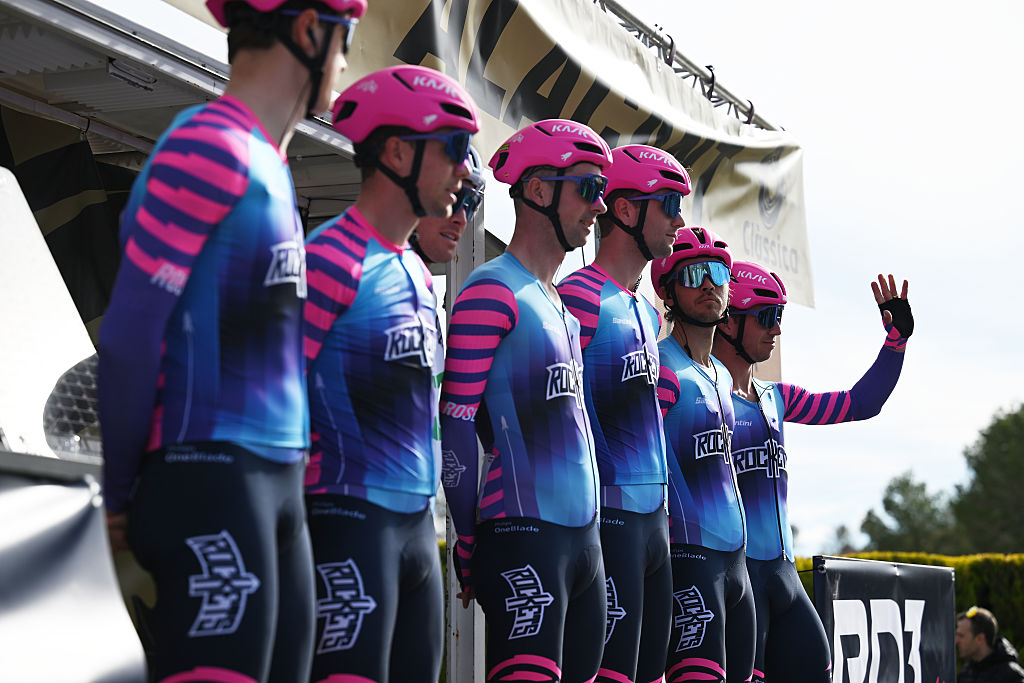Marcel Kittel stops using disc brakes at Abu Dhabi Tour
'I don’t get paid to ride disc brakes,' says German
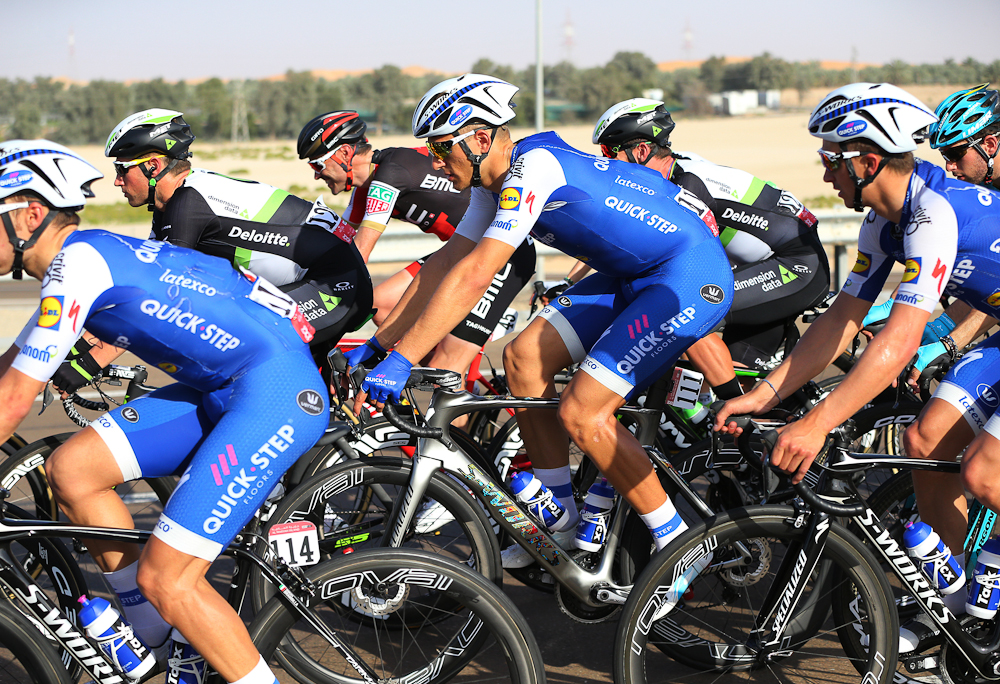
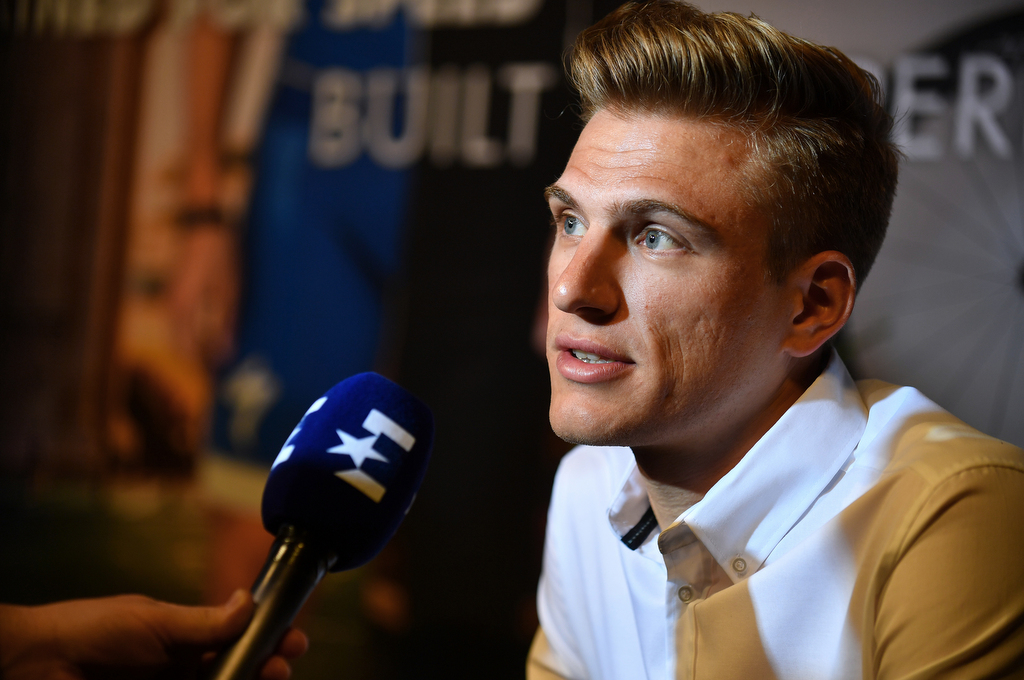
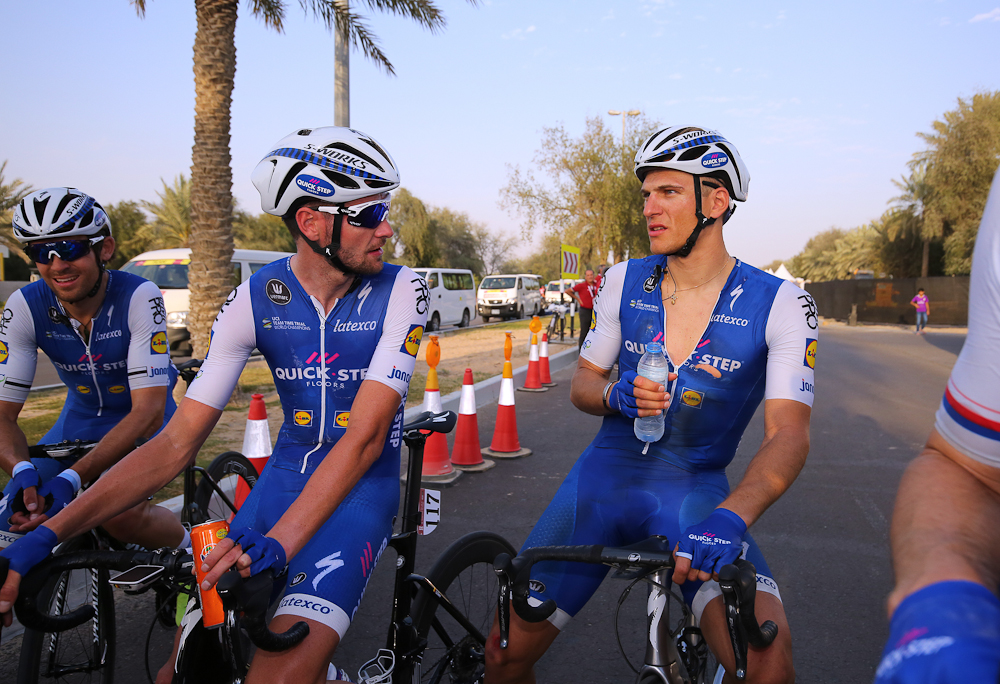
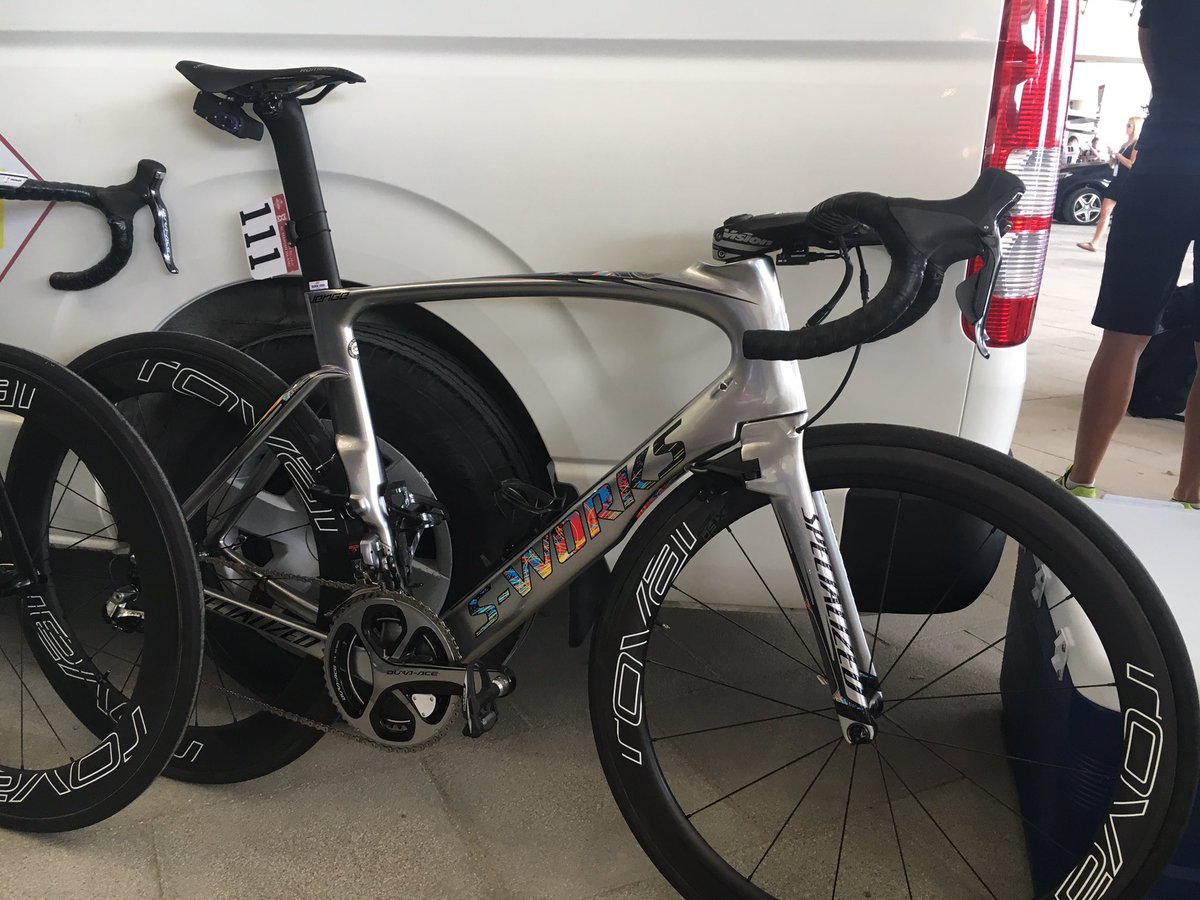
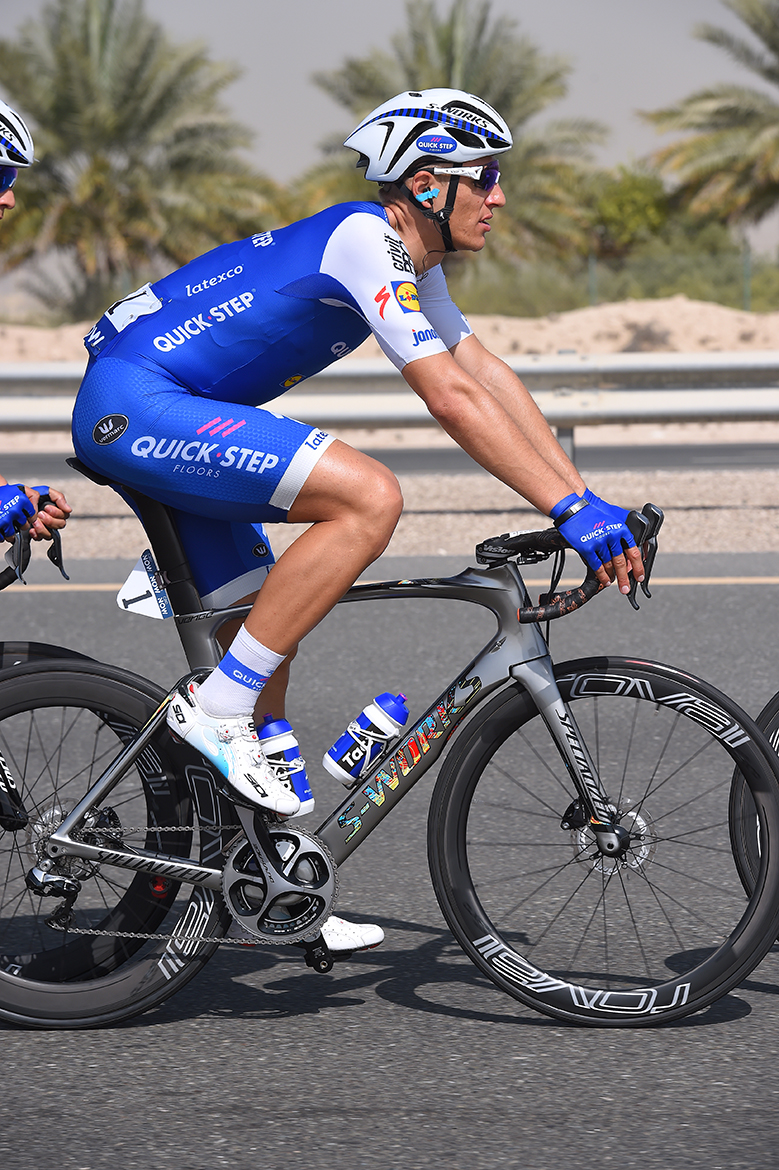
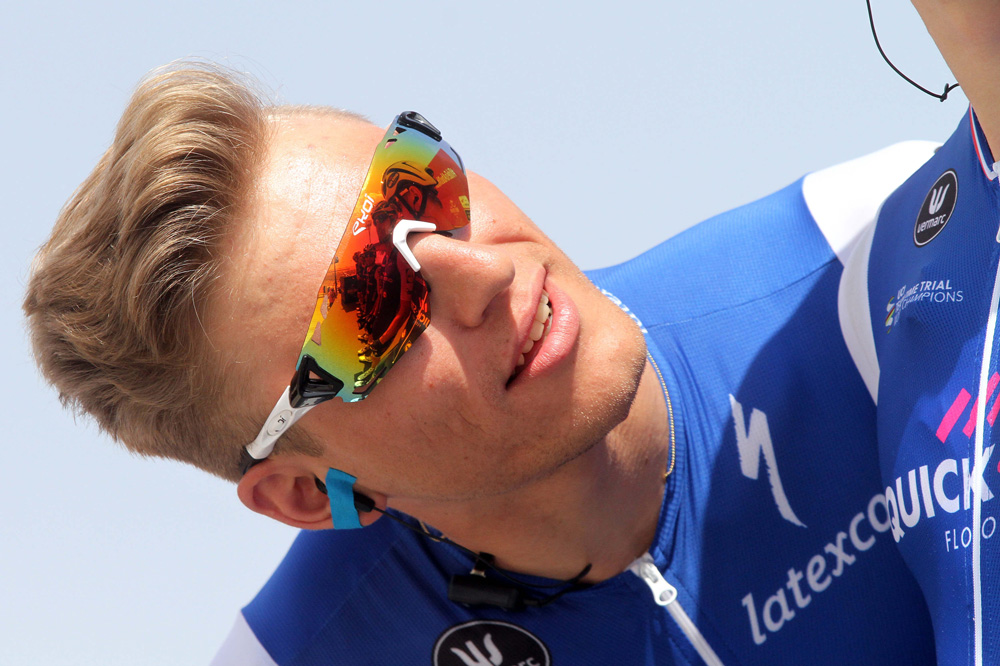
Marcel Kittel has confirmed he will not use a bike with disc brakes during stage 2 of the Abu Dhabi Tour following accusations that the rotors of his disc brakes cut into Owain Doull’s shoe in a high-speed crash on stage 1.
Riders demand UCI ban disc brakes until complete peloton trial is held
Disc brakes: UCI calls on CPA to 'respect the democratic process'
Doull claims Kittel's 'lethal' disc brake bike almost caused serious injury
Chris Froome: Disc brake debate shows riders are not being heard
Kittel was the only rider using disc brakes in the Abu Dhabi Tour and has opted to switch back to a caliper brake Specialized Venge ViAS bike.
Kittel and Doull locked handlebars and crashed at high-speed with a kilometre to go. Other riders also went down, crashing into the roadside barriers.
"My shoe was cut to pieces. That's definitely a disc brake that has done that," said Doull. "Nothing else could cut like that, it's like a knife, it cut straight through it. You can see that thin line, it's exactly in line, cut there and cut there on my shoe and both straight through in an arrow-straight line."
Kittel went to see Doull before the start of stage 2 and then confirmed his decision to change bikes.
“I will not use my disc brake bike today out of respect for my colleagues because I understand the safety issues,” Kittel told media, including Cyclingnews, before preparing for stage 2.
“I wanted to hear how he is and what he thinks about what happened yesterday. We also spoke about his opinion and his sliced shoe, how it maybe happened.”
The latest race content, interviews, features, reviews and expert buying guides, direct to your inbox!
“I think in the end nobody can really tell (what happened). I can understand that directly after a race, when you crash and are emotional, the easiest thing to do was to blame disc brakes. Afterwards on social media there was also good and strong evidence that it was maybe not the case. But it’s not up to me to decide. The UCI has said that this a period for testing disc brakes. They also have to take all the proof that is there, and decide what the real reason was. I think that’s an important thing to do. We should not lose each other in discussions about safety.”
Kittel has always spoken out about rider safety. He admitted he voted in favour of the disc brake trial but wanted certain conditions to be met, referring to rounded rotor edges, protective covers and a homogenous peloton.
“I can only speak for myself but in the vote we had within the CPA, I voted that I would like to use disc brakes but only if the problems that are there are resolved,” he said.
“That means I want to see all the bunch racing on them. I’m also in favour of a caging; there are good prototypes already. I guess it’s a good thing because of the maybe psychological problems of the dangers that are disc brakes on a bike right now.”
Kittel believes the riders should have a key role on decisions that affect their safety.
“I support the technology but I’m also supportive of the riders who are maybe scared. I’m going to talk to everyone to try to convince them but I’m also asking for extra investigations and safety measures,” he said.
“I guess ultimately that the riders should have one of the leading roles in decision like that. We ride the bikes and suffer from the injuries like yesterday when we crashed, so it’s important that we’re also part of the process.”
Kittel denied he opted to use disc brakes this season due to pressure from Quick-Step Floors bike sponsor Specialized. His teammate Tom Boonen has also been using and winning races on a Specialized Venge ViAS disc brake bike, while Peter Sagan (Bora-hansgrohe) was spotted training on a disc brake bike before this weekend’s Omloop Het Nieuwsblad.
“I don’t get paid to ride disc brakes, my colleagues said that as a joke. I’m also not here to drive the market for disc brakes,” Kittel said.
“I think it can be the next step in technology for our sport. I still have that opinion but I also think it’s a smart move to see how it develops now and keep working on it.”
“My sponsors came up to me and everyone else in the team and said: if you really want to ride it you can, but they don’t push us at all.”
To subscribe to the Cyclingnews video channel, click here.


